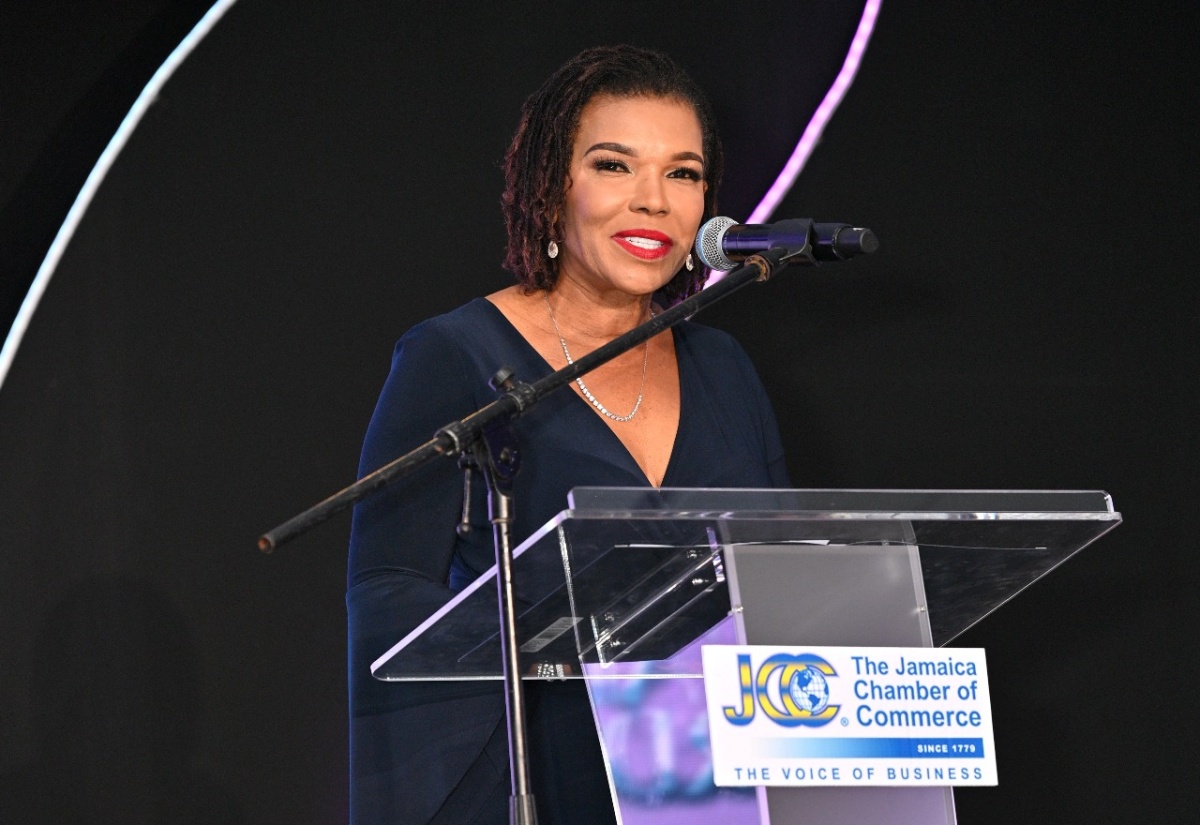In 1975, Dorothea Gordon-Smith left her job in banking while pregnant with her youngest child—not to retreat, but to step into the unknown. Together with her late husband Michael, she co-founded Garbage Disposal and Sanitation Systems Ltd. (GDSS), a modest one-truck operation that would, over the next five decades, grow into one of Jamaica’s most respected and enduring waste management companies.
Today, at 77, Gordon-Smith still leads the enterprise with poise and quiet determination. GDSS now boasts 35 trucks, offices in Kingston, Montego Bay, and Salem, more than 100 employees, and over 650 clients across 11 parishes. But it is not the size of the company that best defines her—it’s the spirit with which she built it.
A Start Rooted in Sacrifice and Resolve
When GDSS faltered in its early days, Gordon-Smith didn’t hesitate. Encouraged by her mother, and understanding the practicalities of their household income, she stepped in to steady the business while caring for a newborn. “There was no maternity leave in those days,” she recalled. “So I had to resign from my job in banking, anyway.”
She turned the office into a nursery and the business into her mission. From accounting and staffing to scouting sites and supervising mechanical repairs, Gordon-Smith immersed herself in every detail. She learned by doing, listening, and adjusting. And when major clients like West Indies Pulp and Paper and West Indies Glass shut down, she adapted—introducing recycling services and launching export initiatives to keep the company alive.
Community First, Always
From the beginning, Gordon-Smith made business decisions rooted in values. She deliberately placed GDSS offices near inner-city communities, because she saw the social and economic potential in places others overlooked.
“I believe most people are good,” she said. “I make it a point to speak to people in the communities we’re located with dignity and respect. One of the first things I do is hire from the community.”
That philosophy remains central to the GDSS culture. It was most recently on display during the company’s 50th anniversary health fair in Riverton City—a direct reflection of Gordon-Smith’s belief in service, equity, and the deep interconnectedness between business and community.
Guided by Instinct, Grounded in Care
Throughout her career, Gordon-Smith has relied not only on skill and strategy but also on something less quantifiable: intuition. She trusted her gut when making difficult decisions or hiring staff—and when she ignored it, she says, she paid the price.
Despite working in a traditionally male-dominated industry, she never allowed gender to define her path. “I didn’t spend much time thinking about whether I belonged,” she said. “I just focused on the work.”
Yet even as she moved through the complexities of running a national waste management company, Gordon-Smith remained acutely aware of the personal toll. The stress was unrelenting, the responsibilities heavy—and so, to sustain herself, she turned to self-discipline and self-care.
Many of Gordon-Smith’s days begin with cardio and weights. She eats with intention, maintains a schedule of regular massages, and makes time for weekly beautification rituals that have become part of her rhythm. Her home, though often filled with friends and family, is a space of calm—a place where laughter is easy and peace is protected.
Her vibrant, ever-changing hairstyles and bold wardrobe reflect the same intentionality. They’re an extension of a personality that is warm, expressive, and quietly powerful. Her looks, like her spirit, defy her age—but it is her discipline, not vanity, that fuels her vitality.
More Than a Business, A Living Legacy
As she begins stepping back from daily operations, Gordon-Smith is reflective—not just about the trucks and contracts, but about the lives her leadership has touched.
“There were hard times,” she said. “There were months I couldn’t even draw a salary. But when I thought about the jobs we created, and the families that depend on those jobs—that always kept me going.”
She refers to her employees as “over 100 children”—a sentiment that reflects both affection and responsibility. Loyalty, mutual respect, and long-standing service define the culture she built.
In 2024 alone, under her guidance, GDSS exported over 1,000 tonnes of glass and processed more than 500 tonnes of plastic and paper—a testament to her vision for a cleaner, more sustainable Jamaica.
But perhaps her greatest impact lies in what she represents: a woman who entered a tough, gritty industry without pretense and reshaped it through persistence, empathy, and grace.
A Quiet Redefinition of Leadership
Gordon-Smith has never been one to seek the spotlight. Her legacy is not one of noise or flash—but of consistency, care, and conviction. In an industry that rarely sees women at the top, she not only rose—she transformed what leadership looks like.
Her story is proof that strength doesn’t always roar. Sometimes it moves steadily, dressed in bright colors, guided by intuition, and held together by deep, unshakable purpose.


 Businessuite Women1 week ago
Businessuite Women1 week ago
 Businessuite News243 weeks ago
Businessuite News243 weeks ago
 Businessuite News242 weeks ago
Businessuite News242 weeks ago
 Businessuite News24 International3 weeks ago
Businessuite News24 International3 weeks ago
 Corporate Feature3 weeks ago
Corporate Feature3 weeks ago
 Businessuite Markets2 weeks ago
Businessuite Markets2 weeks ago
 Business Insights1 week ago
Business Insights1 week ago
 Businessuite Women3 weeks ago
Businessuite Women3 weeks ago






 In early 2024, Jamaican technologist Raquel Seville founded Dataffluent Limited to address a critical void: Caribbean markets lacked reliable, structured financial data. The startup’s mission is audacious yet essential—to “democratise data for underserved markets,” empowering investors, analysts, and companies to navigate with clarity in regions traditionally seen as opaque .
In early 2024, Jamaican technologist Raquel Seville founded Dataffluent Limited to address a critical void: Caribbean markets lacked reliable, structured financial data. The startup’s mission is audacious yet essential—to “democratise data for underserved markets,” empowering investors, analysts, and companies to navigate with clarity in regions traditionally seen as opaque .


 Safia’s journey with Pulse began in earnest in 2012 when she joined as Director of Sales and Marketing. Her prior experience included managerial roles at Red Stripe Jamaica and Diageo Brazil, where she honed her skills in brand management and strategic marketing. She holds a BSc in International Relations from the University of the West Indies and an MBA from Nova Southeastern University.
Safia’s journey with Pulse began in earnest in 2012 when she joined as Director of Sales and Marketing. Her prior experience included managerial roles at Red Stripe Jamaica and Diageo Brazil, where she honed her skills in brand management and strategic marketing. She holds a BSc in International Relations from the University of the West Indies and an MBA from Nova Southeastern University.





